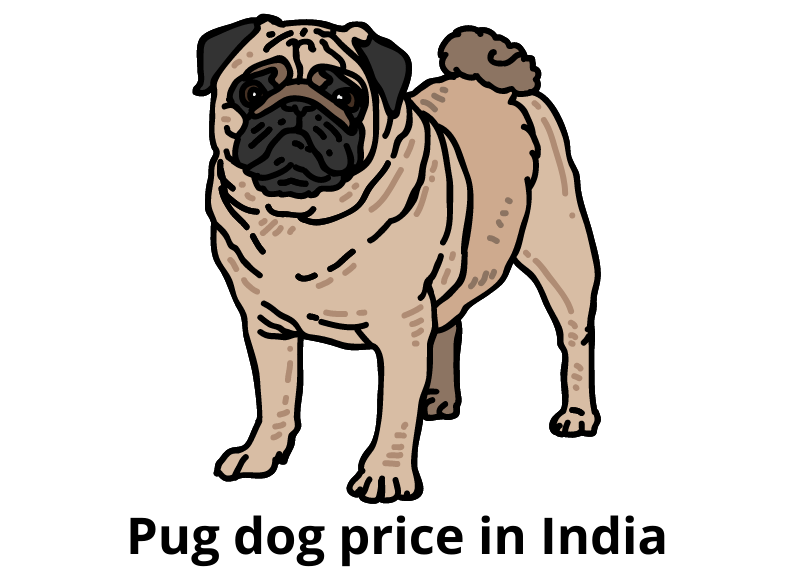A Dog And Cat Hospital are a particular area designed just for pets. Best Dog And Cat Hospital are fully equipped with all of the latest, up-to-date equipment.
The staff at these top level Hospitals are very caring and dedicated to providing a high level of care to your pet.
Table of Contents
Things that you should know in advance about these Dog And Cat Hospital.
If you are considering having your pet admitted into one of these Dog And Cat Hospital, there are some things that you should know in advance.
- A Hospital is fully equipped to handle many situation that may arise in a pet’s life. They will have an entire staff of highly trained members, qualified and trained in all areas of pet’s medicine.
- Their job is to ensure that your cat is getting the best possible medical care and that all of its needs are met, including vaccinations and check-ups.
When it comes to these dog and cat hospitals, there are many options to choose from. Some clinics will focus on the dog and cat-specific treatments, while others will focus on general, preventative care. Each of these Hospitals has its specialty and will be able to provide your dog or cat with the very best treatment available. You can learn about the services offered at each Hospital by contacting them directly or looking through the information available on their website.
Top 10 Dog And Cat Hospital in USA.
A great thumb’s up for Google & Reviews of many people, who helped us for choosing top 10 Dog And Cat Hospitals in United States.
1. ANTIOCH DOG & CAT HOSPITAL
Address: 5200 NE Vivion Rd, Kansas City, MO 64119, United States
Ratings: 4.8/5.0 (550+ Ratings)
Hours:
| Monday to Friday | 07:30 AM – 06:00 PM |
| Saturday | 08:00 AM – 12:00 PM |
| Sunday | Close |
2. Long Drive Dog & Cat Hospital
Address: 7327 Long Dr, Houston, TX 77087, United States
Ratings: 4.6/5.0 (900+ Ratings)
Hours:
| Monday to Friday | 07:00 AM – 05:30 PM |
| Saturday | Close |
| Sunday | Close |
3. Dog & Cat Hospital
Address: 238 W 21st St, Norfolk, VA 23517, United States
Ratings: 4.7/5.0 (450+ Ratings)
Hours:
| Monday to Friday | 08:00 AM – 05:30 PM |
| Saturday | 08:00 AM – 05:30 PM |
| Sunday | Close |
4. Berkeley Dog & Cat Hospital
Address: 2126 Haste St, Berkeley, CA 94704, United States
Ratings: 4.6/5.0 (450+ Ratings)
Hours:
| Monday to Friday | 08:00 AM – 06:00 PM |
| Saturday | 09:00 AM – 06:00 PM |
| Sunday | 09:00 AM – 06:00 PM |
5. Garden Grove Dog and Cat Hospital
Address: 10822 Garden Grove Blvd, Garden Grove, CA 92843, United States
Ratings: 4.5/5.0 (500+ Ratings)
Hours:
| Monday to Friday | 07:30 AM – 06:00 PM |
| Saturday | 09:00 AM – 12:00 PM |
| Sunday | 11:00 AM – 03:00 PM |
6. Alamo Dog & Cat Hospital
Address: 1619 Pleasanton Rd, San Antonio, TX 78221, United States
Ratings: 4.3/5.0 (850+ Ratings)
Hours:
| Monday to Friday | 08:00 AM – 04:00 PM |
| Saturday | 08:00 AM – 12:00 PM |
| Sunday | 10:00 AM – 01:00 PM |
7. Cats & Dogs Animal Hospital
Address: 627 Redondo Ave, Long Beach, CA 90814, United States
Ratings: 4.8/5.0 (310+ Ratings)
Hours:
| Monday to Friday | 07:00 AM – 07:00 PM |
| Saturday | 08:00 AM – 12:00 PM |
| Sunday | Close |
8. Whittier Dog & Cat Hospital
Address: 12124 Philadelphia St, Whittier, CA 90601, United States
Ratings: 4.5/5.0 (350+ Ratings)
Hours:
| Monday to Friday | 07:30 AM – 06:00 PM |
| Saturday | 07:30 AM – 03:00 PM |
| Sunday | Close |
9. Los Gatos Dog & Cat Hospital
Address: 17480 Shelburne Way, Los Gatos, CA 95030, United States
Ratings: 4.8/5.0 (100+ Ratings)
Hours:
| Monday to Friday | 08:00 AM – 06:00 PM |
| Saturday | 09:00 AM – 04:00 PM |
| Sunday | Close |
10. Phoenix Dog/Cat Hospital
Address: 3418 N 7th Ave, Phoenix, AZ 85013, United States
Ratings: 4.7/5.0 (300+ Ratings)
Hours:
| Monday to Friday | 07:00 AM – 06:00 PM |
| Saturday | 08:00 AM – 06:00 PM |
| Sunday | 10:00 AM – 04:00 PM |
Things you should do before going to these Dog And Cat Hospital.
Before you allow any pet to enter any of these clinics, there are a few things that you should do. First, be sure that the location is fully accredited. You should also make sure that they are fully equipped to handle the number of animals in attendance at the clinic. The cost of services will vary from clinic to clinic, so be sure to find out the prices and the service schedule. Some clinics do not have any form of medical insurance, which can be extremely helpful if you do not have medical insurance for your cat or dog.
Reasons why you should choose these hospitals.
There are many great reasons why you should choose the services of these dog and cat hospital.
You will be able to get routine check-ups, vaccinations, pain relief for your dog or cats, and much more. In most cases, these services will also be covered by your vet. Your vet may even be able to refer you to a good clinic if one does not exist in your area. If you require specialized treatment, it is always better to take this to a technical facility rather than wait for routine care to help.
Give your pet a immediate attention
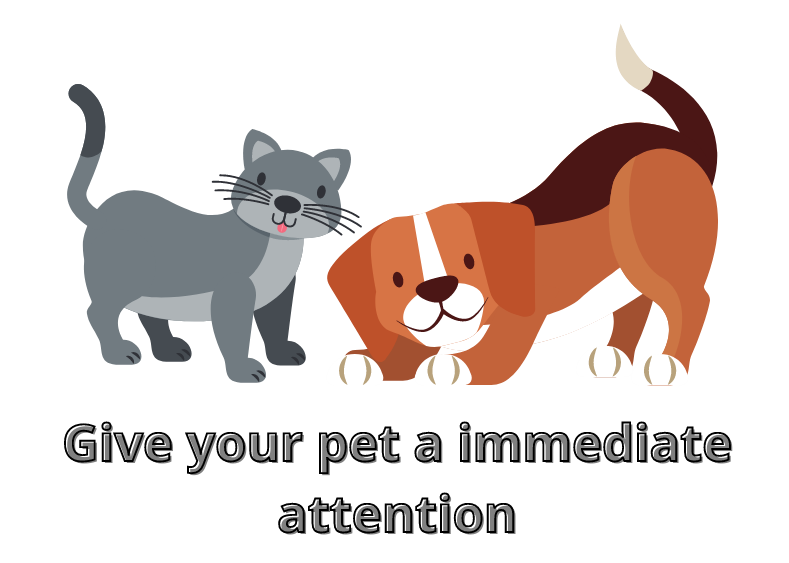
If your dog or cat gets sick, they will need your immediate attention. A dog or cat hospital will be able to provide all of the necessary medical care that your pet will need while in the hospital. This is very important, especially for small dogs or cats that cannot communicate to get medical attention on their own. Even if your pet can communicate, it may only be able to do so in a whisper, making it very difficult for the animal to communicate with humans. By using the services of a dog and cat hospital, you will be able to ensure the best care is given to your pet in the shortest amount of time.
A quick guide for Dog And Cat Hospital
How much does a vet cost on average?
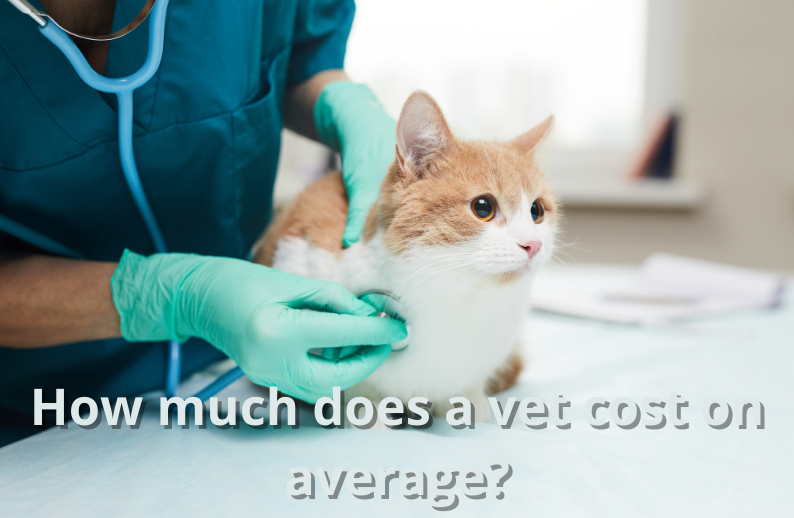
- This is the question that many animal lovers (and animal lovers alike) ask when they are faced with the fact that their monthly pet care costs are not keeping the family’s budget in the green. As it turns out, veterinary care is not that expensive at all. You can often find some great deals on vet bills when you shop around and compare costs.
- There is a long list of different factors that go into the estimation of how much a vet bill will be. For example, the age and health of the animal are factors that will determine how much your pet care costs are. In addition, other things will affect these costs as well, including the area where the vet resides, whether you are using a traditional veterinarian or an alternative vet, and the types of services that are covered by your particular plan. It is impossible to give an exact calculation, but there are ways to get a ballpark estimate that will allow you to decide how much a vet bill is likely to run you.
- How much does a vet bill typically run? The cost of caring for an animal is based on many factors, including the age of the animal, whether a pet has ever been prescribed medication or treatment by a veterinarian if it has any behavioral problems such as digging, excessive barking, or excessive running, and whether or not a veterinarian has used any preventative measures to control those issues before they became a problem. On the whole, it is safe to say that the typical American household will spend at least a few hundred dollars a year on veterinarian care.
- How much does a vet cost on average? While it is impossible to give a straight, universal number, there are several ways to compare the costs of a standard American vet to those of a specialty vet in your city. For instance, if you live in a large city where there are several smaller veterinary clinics and specialty veterinary practices then there might be a higher likelihood of getting the care you want at a lower cost than if you lived in a small town with maybe one or two large animal hospitals and veterinary practices.
- How much does a vet cost on average? Unfortunately, veterinary care is not available to everyone. To get full coverage, you will have to buy insurance, but even then the rates can be pretty high. As a result, the majority of people who own dogs, cats, horses, birds, or other animals will not be able to pay the costs of the care that they need, and as a result, will have to seek out veterinary help for their pets.
- The good news is that if you cannot afford the vet bills right now, you can still get the type of care that you and your pet would want to have. There are many low-cost, or even free, alternative vet care options that you can turn to if you cannot afford the much higher vet bills that you would end up paying on average. You can search online to find them. Most of these services provide high-quality care at lower costs.
What happens if I never take my dog to the vet?
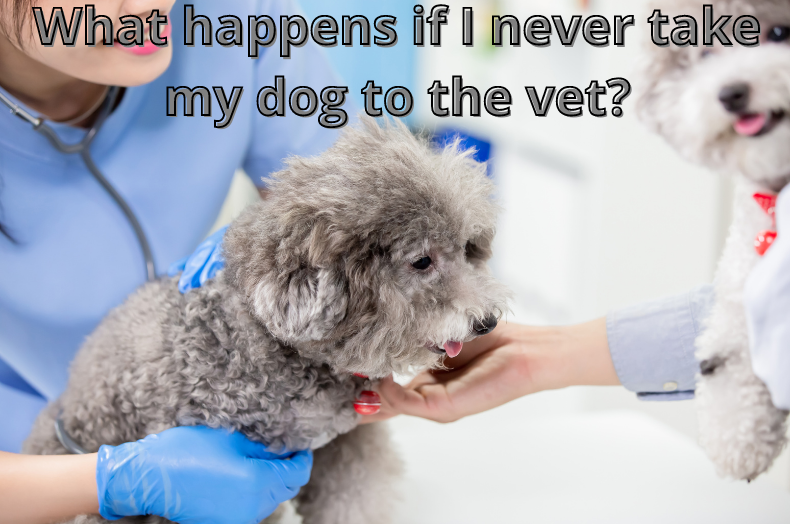
- That is a silly question. I think we all understand that the vet’s office is where we get all of our information about keeping our animals healthy. Pets are a part of our families and when you don’t take them to the vet it affects the bond between you and your pet.
- Pets can sometimes get sick and need attention. The last thing you want to do is wait until something serious happens and then try and find a vet. It is better to be careful and get your dog checked out when you can.
- How will I know when my dog needs to get veterinary care? A lot of times it can be difficult to know which vet to go to. You need to have a veterinarian that you trust and that listens to you. They should be willing to take the time to explain to you what they do and what services your dog may need. You also want a vet that treats your dog with care.
- What happens if I decide not to take my dog to the vet? Well, you are going to have to do some research. There are many different sources of information that you can check into. Try and find one that has a vast amount of information on the topic. This will help you make a good decision about where you want to take your dog to get the best care possible.
- Where would I find a good vet if I did not take my dog to one? You must find a vet who is willing to listen to what you have to say. They need to be a people person and not just someone who cares about money. You do not want someone who does not care about your dog’s health to treat your dog.
- What happens if I could not find a good vet? This is something that you may need to consider if you cannot afford to keep going to the vet. You can always ask your friends and family members for suggestions. They may have already taken their dogs to a vet or know someone who has.
- What happens if I do not like the vet? Chances are that this is an issue that can only be resolved with some counseling. You should talk to the staff of the vet and ask for advice. You may even need to try it out before you buy.
- The last question that would come to mind is what happens if I ever took my dog to the wrong vet. This is a very serious thing to think about. There are some unscrupulous vets out there that may do more harm to your dog than good. If you can avoid the problem, you should.
How important is it to have pet insurance?
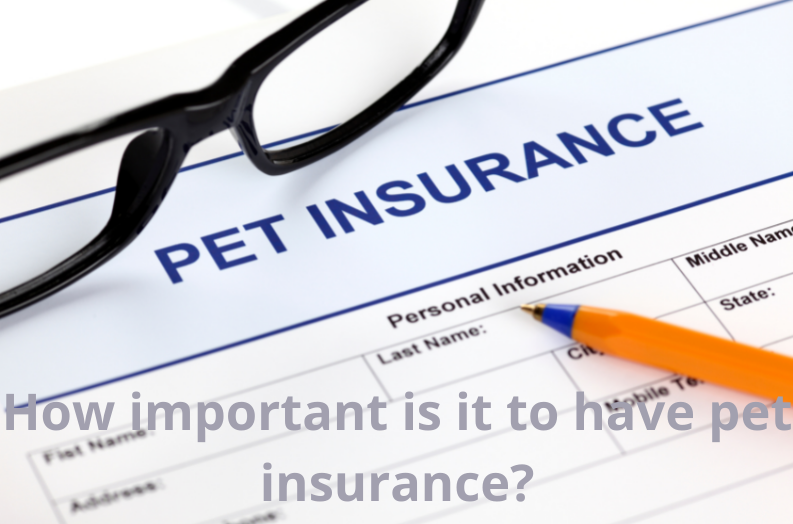
- As a dog or cat owner, the question “How important is it to have pet insurance?” always comes up. After all, we love our pets and want the best for them. There are so many things that can go wrong with pets and as a dog or cat owner, you know this all too well. Your pet could get hurt from a car, fall, and even get hit by a flying object, something that happens all the time.
- You do not have to worry about these things happening to your pets as they will have pet insurance and be covered. So, in essence, how important is it to have pet insurance? This question should be asked with more than one answer because the answer will vary from person to person and even between companies.
- When you are looking for pet insurance coverage, there are several factors that you should consider. One of those factors is your pet’s breed. Some breeds are more prone to certain types of problems than others, so you will want to look at which ones are prone to which kinds of problems before you decide on the type of pet insurance that you are going to get. For example, if your dog or cat tends to have hip dysplasia or knee dysplasia, then you may want to choose a dog or cat insurance plan that specializes in those breeds.
- Another important factor is the age and health of your pets. Older pets tend to require less insurance coverage. This is because older pets tend to have greater problems and should be expected to have to spend more time at the vet. The type of pet that you have also will impact the cost of the pet insurance that you will get. Dog and cat insurance plans are going to be significantly higher than a cat or a dog insurance plan.
- Pet insurance is not required in most cases. However, it can help you to reduce the bills that you will incur if your pet becomes sick or has to be put to sleep. It is important to note that many times if the pet is extremely ill it can cause its death. So the money that you put toward the care of the pet can help to offset the costs of its care when it is very sick. If you have a large breed dog then you may want to consider how important it is to have pet insurance for this type of breed. They are going to cost a lot more than a smaller breed of dog.
- Finally, you need to consider how important it is to have pet insurance if you have a service or club of your own that takes care of your pet. When you take care of your pet and then you lose it, you will need to have insurance to replace the pet. So having pet insurance means that you can replace your lost pet without having to worry about where you are going to get the money to do so. It is important to have insurance just like you would with any other policy that you have.
What should I feed my dog to keep him healthy?

- Dog owners often have a tough time deciding what should I feed my dog for his health. In the first place, the dog’s diet depends on the breed of the dog, age and activity level. Some dogs are born with more fragile bones and can’t eat much protein, while some need much more calories than others. So, the diet you’ll feed your dog may vary depending on age, activity level and even breed.
- Dogs that are naturally high energy need to be fed more to fuel their extra energy. Because they burn more calories than their less active counterparts, they need more frequent feeding. As long as you know how much your dog can eat, you won’t overfeed them. However, if you’re looking to make your dog healthier, many foods are healthier for him than others, including:
- For puppies, a good diet for them to chew on would include a bone meal. However, the dog’s teeth and gums require regular brushing, so if you’re not going to provide your dog with a chewer toy, then this might not be the best option for you. Adult dogs should be fed beef or chicken meal, which has been cooked in water. Chicken meal is the perfect source of protein for an everyday diet. Just like with puppies, giving your dog a chew bone once a day can keep their mouths busy and their teeth healthy.
- Your dog needs different nutrition from other dogs if he has a genetic predisposition towards obesity. If your dog is overweight, you should cut back on portions and increase exercise time. You’ll need to take into account factors like size, breed and activity level when deciding what should I feed my dog for my dog to stay healthy. Exercise will help burn off excess energy that your dog may have. A daily walk is essential if your dog isn’t already involved in some type of sports or work.
- As far as what should I feed my dog for my dog to stay healthy, you should provide them with a raw, unprocessed food diet. Some great options include raw fish, vegetables (preferably cooked), and nuts. Be sure not to feed your dog too much-cooked food. Dogs can’t handle too much sugar, which is why you should look for healthy treats, like unprocessed fruit and vegetables. If your dog is used to eating commercially processed dog food, it may be a good idea to switch him to a raw, healthy diet for a few weeks to give him the best results.
- In addition to a balanced diet of homemade foods, you’ll also want to make sure your dog gets plenty of exercises each day. They need at least an hour a day of exercise to help burn off excess energy. Even if your dog stays mostly inside, you still need to give him some kind of physical activity. A walk is ideal, but you can take your dog outside for short errands if you live in a town where there are small parks. Whatever you do, don’t neglect your dog’s health, as dogs need exercise just like we do.
Do most cat and dog owners take their pets to the vet regularly?
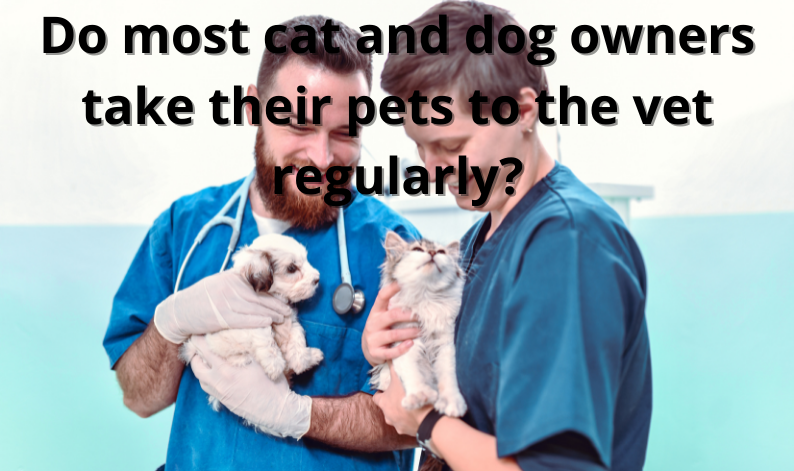
- One thing to keep in mind when searching out alternative remedies is the difference between “traditional” and “natural.” The word “traditional” refers to well-established practices that have been used for years, whereas “natural” refers to new, unproven methods or practices. Natural treatments may be safer for your pet and easier to administer than conventional methods, but they are not necessarily completely free of side effects. Also, natural remedies can take up to a year to develop and might not be covered by insurance in some cases. If you are interested in trying a homeopathic remedy or herbal remedy, do your homework on the product before you buy it.
- Cat owners should be aware of common homeopathic remedies such as catarrh, dander, and ear mites, which can lead to allergies. Cantharis and berberis Vulgaris are often recommended for dogs with allergies. Stinging nettle and lycopodium salicylate are sometimes recommended for dogs with chronic skin problems, including athlete’s foot. Although these products are considered natural, they could potentially be dangerous if taken in high doses. Most dog owners are probably able to use these products with caution.
- For pet owners who are wary of trying natural remedies, homeopathic remedies are also available. Homeopathy is based on the theory that “like treats like.” This means that if you treat your pet to the same substance that he receives in the homeopathic pill, he will likely have fewer adverse side effects than he would if you gave him a substance that he is allergic to.
- The majority of dog owners, however, still rely on traditional medicine. They believe that giving their dog prescription drugs or conventional treatments will assure them that their pet is getting the best care possible. There are several problems with this approach. First, prescription drugs can be toxic, even to dogs that are already under medication. Second, some prescription drugs have serious side effects and should only be used on dogs after consulting with a veterinarian and receiving a complete medical history.
- Another problem is that many pet owners believe that since they have paid a premium for their pet’s health, they have the right to take their pets to the vet for any reason. The thought process is that the more frequently their pet is seen by the veterinarian, the less likely he is to develop medical conditions. The flip side to this though is that the more often he gets sick, the less money he makes. This is because the cost of treating him at the animal clinic is much higher than at the vet. Some pet owners may also feel that since their pet is so important to them, they are willing to go through the stress of having him put down if it means that they can see him more regularly.
- The answer to the question above is, unfortunately, no. It is up to the pet owner to make sure that their pet gets the best medical care possible. This doesn’t necessarily mean that they have to visit the animal clinic every day. By taking a holistic approach to veterinary medicine, dog and cat owners can reduce the cost of having to bring their pets to the vet and ensure that they get the very best care.
Useful Links:
What to say to someone who lost a pet?
Why my dog is not eating food?






